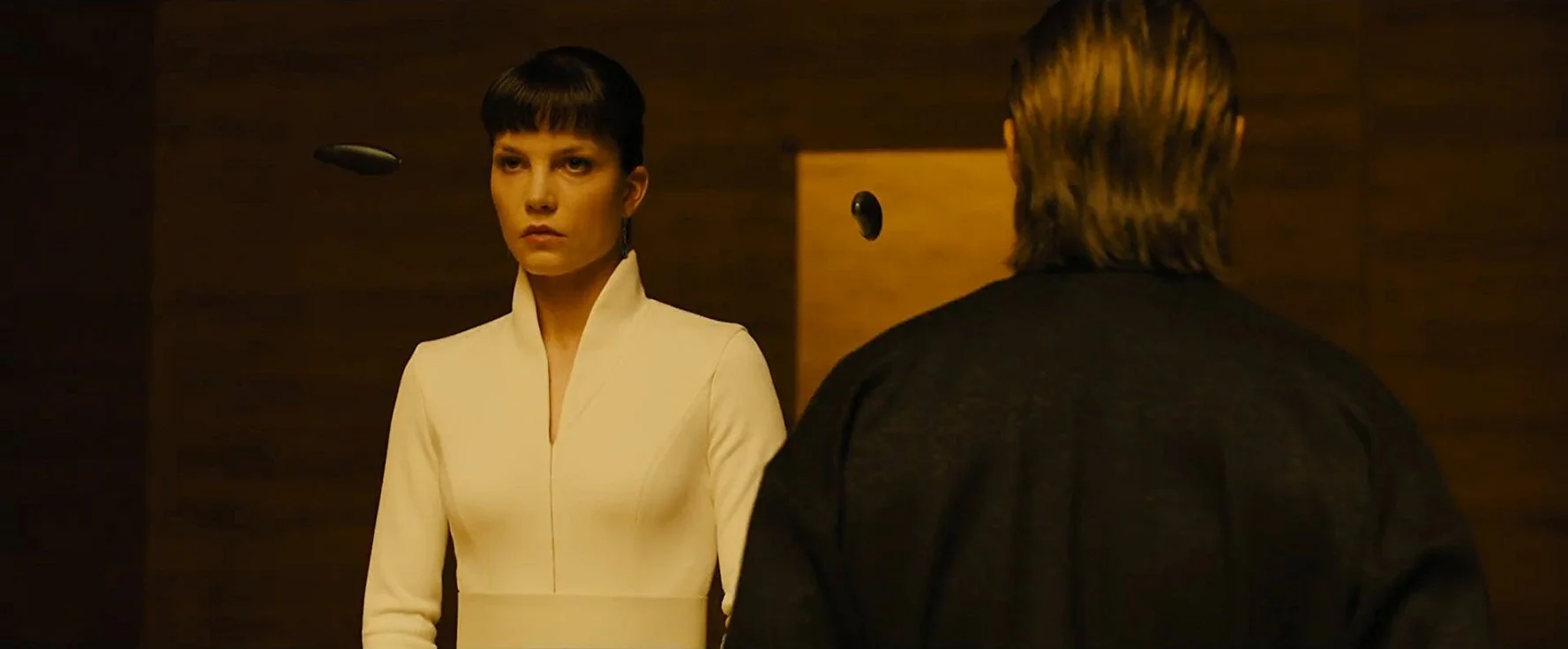Nearly all the women in 2049 are relegated to passive roles where they have little to no agency or purpose in the narrative other than to motivate or appease the male characters.
Deckard’s daughter is the object of all of the central characters plans. She is what the men are searching for; the princess in her tower. She has had no say in how her life played out for the past thirty years.
A.I. girlfriend JOI’s sole function in the story is to “die” in order to further motivate K. JOI has no free will, and never could. Joi is a pre-programmed "product" who's seemingly real love for K is not an actual choice. If K had elected to somehow alter her code and allow for the free will to choose whether to stay with him.
Rachael, one of the two central characters of the original film, is killed off-screen, her only act deemed of any value in the narrative being to give birth to a child.
Luv, on the other hand has a good deal of screen time but lacks in any character development. Her only motivation is to please her master Niander Wallace out of fear of what he will do to her if she fails. The bleeding out of the newly 'born' replicant at the hands of Wallace serves the narrative purpose of introducing the antagonist and his goals to the viewer, however within the context of the story this monologue and display is meant entirely for Luv alone to witness. It's a reminder that she is expendable. Her emotional trauma is evident as she begins to cry, first at the act of Wallace and gain during her own act of inflicting pain on another. Her actions are driven By fear of losing Wallace's approval.
There are two women who do show some agency: Madam, K’s boss shows her own will in defying Wallace and the law for the greater good and for K whom she has a soft spot for, and the rebel leader who also seems to be acting of her own will, however we don’t get a great deal of screen time with either of them.
Instead, the majority of the narrative is men overly fetishizing and obsessing over females and their wombs. Rachael is overtly praised for her beauty and ability of reproduction, and those female models that are barren are discarded and tossed aside by a man who sees them as useless.
Let’s talk about Deckard and Rachael. One of it’s glaring failings that makes me uncomfortable to this day is the toxic masculinity displayed by Deckard during the unfolding of his “relationship” with Rachael. Namely the scene in Deckard’s apartment where he forces himself on her despite her clear signals of discomfort and even clearer attempts at escape.
In 2049 the narrative repeatedly romanticizes the Rachael/Deckard relationship of the original BR. It’s referred to as “that beautiful night, and how perfect it all was.” I admit the scene I which they meet at Tyrell’s beautiful office is gorgeously lit and shot. The chemistry between the two then is as equals. Rachael toys with Deckard and even outwits him at his own test.
It is after this first meeting that the dynamic shifts completely and the enigmatic and intelligent Rachael turns to Deckard in a state of vulnerability and fear, falling into the helpless woman trope. Deckard takes advantage of the shift of power and forces himself on her instead of helping her. Rachael denies his advances and tries to escape but is unable to. That does not sound like a romantic or perfect night. Slamming a door shut on a girl, throwing her against a wall and kissing her when she is crying makes me uncomfortable to this day.
If not for Vangelis’ soaring saxophone this “romantic” this could easily be a horror sequence out of the Shining. Perhaps in the 80’s this passed as romantic, but I feel that the scene’s problem’s have gone largely ignored.




